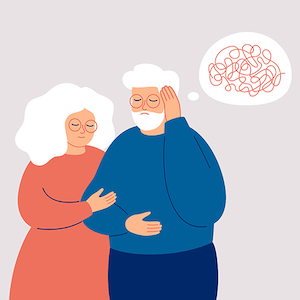Negative and positive ageism in an Italian sample: how ageist beliefs relate to epistemic trust, psychological distress, and well-being

Accepted: May 4, 2023
HTML: 91
All claims expressed in this article are solely those of the authors and do not necessarily represent those of their affiliated organizations, or those of the publisher, the editors and the reviewers. Any product that may be evaluated in this article or claim that may be made by its manufacturer is not guaranteed or endorsed by the publisher.
Authors
Ageism is a social issue of growing concern; ageist beliefs can shape the individual and collective experience of aging. The present study aimed to explore positive and negative ageism in young adults (YA) (18-30 years) and adults (AD) (31-60 years) and their relationship with epistemic trust, psychological distress, and psychological well-being. 301 Italian adult participants completed an online survey that included the following self-report questionnaires: attitudes towards older people scale, epistemic trust, mistrust and credulity questionnaire, depression anxiety stress scale-21, and Warwick-Edinburgh mental wellbeing scale. Negative ageism was significantly higher in YA compared to AD; on the contrary, AD presented more positive ageism than YA. When considering the entire sample, negative ageism was correlated with various dimensions of psychological distress and epistemic trust. A mediation model revealed that epistemic mistrust fully mediated the relationship between age and negative ageism, suggesting that changes in ageist beliefs that seem to occur with age are mediated by a mistrustful epistemic stance. Future research should focus on further exploring the link between epistemic trust, mental health, and holding ageist beliefs. The results are also discussed in terms of their implications for the treatment of older patients.
How to Cite

This work is licensed under a Creative Commons Attribution-NonCommercial 4.0 International License.
PAGEPress has chosen to apply the Creative Commons Attribution NonCommercial 4.0 International License (CC BY-NC 4.0) to all manuscripts to be published.

 https://doi.org/10.4081/ripppo.2023.676
https://doi.org/10.4081/ripppo.2023.676



